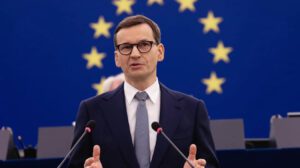
Germany creates the main difficulties for tightening sanctions against the Russian Federation, Polish Prime Minister Mateusz Morawiecki said at a press conference on Monday. “This is Germany, which is the main hindrance to the sanctions,” Western media quoted the prime minister as saying. Hungary, according to Morawiecki, does not block the possibility of strengthening sanctions against Russia. On the eve of the President of the European Council Charles Michel said that the EU authorities are preparing for new sanctions against Russia.

The German government calls for an investigation into the crimes of the Russian military and tougher sanctions against the Russian Federation, reports DW. “We must investigate these crimes of the Russian military with all severity,” said German Chancellor Olaf Scholz on Sunday, after the publication of evidence of war crimes committed by Russian invaders in the Kiev region. He noted that “criminals and those who gave them orders must be consistently held accountable.” Scholz also appealed to Moscow with a call to “finally agree to a ceasefire and stop hostilities.” At the same time, the German cabinet calls for tougher sanctions against the Russian Federation. “(…) We will tighten sanctions against Russia and support Ukraine even more strongly in its defense,” German Foreign Minister Annalena Berbock tweeted. The head of the Ministry of Economy and Vice-Chancellor of Germany, Robert Habek, also supports the tightening of sanctions against the Russian Federation. “This terrible war crime cannot go unanswered (the crimes of the Russian military in the Kiev region – IF),” he said in an interview with the German publication Bild. He also noted that “increased punitive measures against Russia are already under development” with partners in the EU.
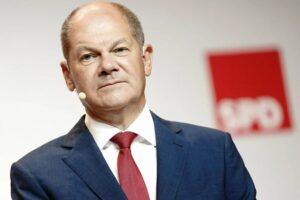
German Chancellor Olaf Scholz promised that EU countries would impose new sanctions on Russia.
“In the coming days, we will take new measures,” he said on Sunday in Berlin.
According to him, the Russian president and those who support him will “feel the consequences” of these sanctions.
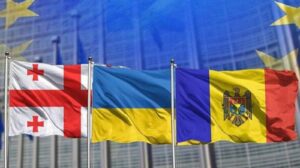
Chairman of the Verkhovna Rada of Ukraine Ruslan Stefanchuk is disappointed with the positions of Moldova and Georgia on neutrality in the issue of imposing sanctions against the Russian Federation. “I once thought that what unites Ukraine most of all with Georgia and Moldova is that our countries are territorially “bitten” by the Russian Federation. But today’s position of official Tbilisi and Chisinau regarding their neutrality in imposing sanctions against Russia has disappointed me,” Stefanchuk wrote. He stressed that friends are known in trouble, “but it’s good that our peoples have a different opinion.”
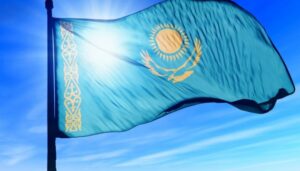
Kazakhstan will not be a tool to circumvent US and EU sanctions against Russia, Timur Suleimenov, First Deputy Head of the Presidential Administration of Kazakhstan, said.
In an interview with Euractiv, he called the purpose of his visit to the EU “to demonstrate to our European partners that Kazakhstan will not be a tool to circumvent sanctions against Russia by the US and the EU.”
“We will comply with the sanctions. Despite the fact that we are part of an economic union with Russia, Belarus and other countries, we are also part of the international community. Therefore, the last thing we want is for Kazakhstan to be subject to secondary US and EU sanctions,” he stressed. Suleimenov.
“We will do our best to control the sanctioned goods. We will do our best to control any investment in Kazakhstan by individuals or organizations that are under sanctions, and this is what we wanted to openly convey to the Europeans,” he said.
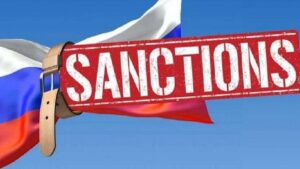
The United States may further expand sanctions against Russia, U.S. Deputy National Security Adviser for International Economics Daleep Singh said in an interview with CBS News.
“We can broaden our sanctions. So – take the measures, take the sanctions we’ve already applied, apply them in more targets. Apply them to more sectors. More banks, more sectors that we haven’t touched,” Singh said.
According to him, the sanctions may affect “the commanding heights of the Russian economy.” “It’s mostly about oil and gas, but there are other sectors too,” he said.
Speaking about the possibility of lifting sanctions against Russia, Singh stressed that “we’re nowhere near that point.”
He believes that “the first thing he has to do is to stop – a reckless and barbaric attack on the civilians of Ukraine. That’s not happening.”